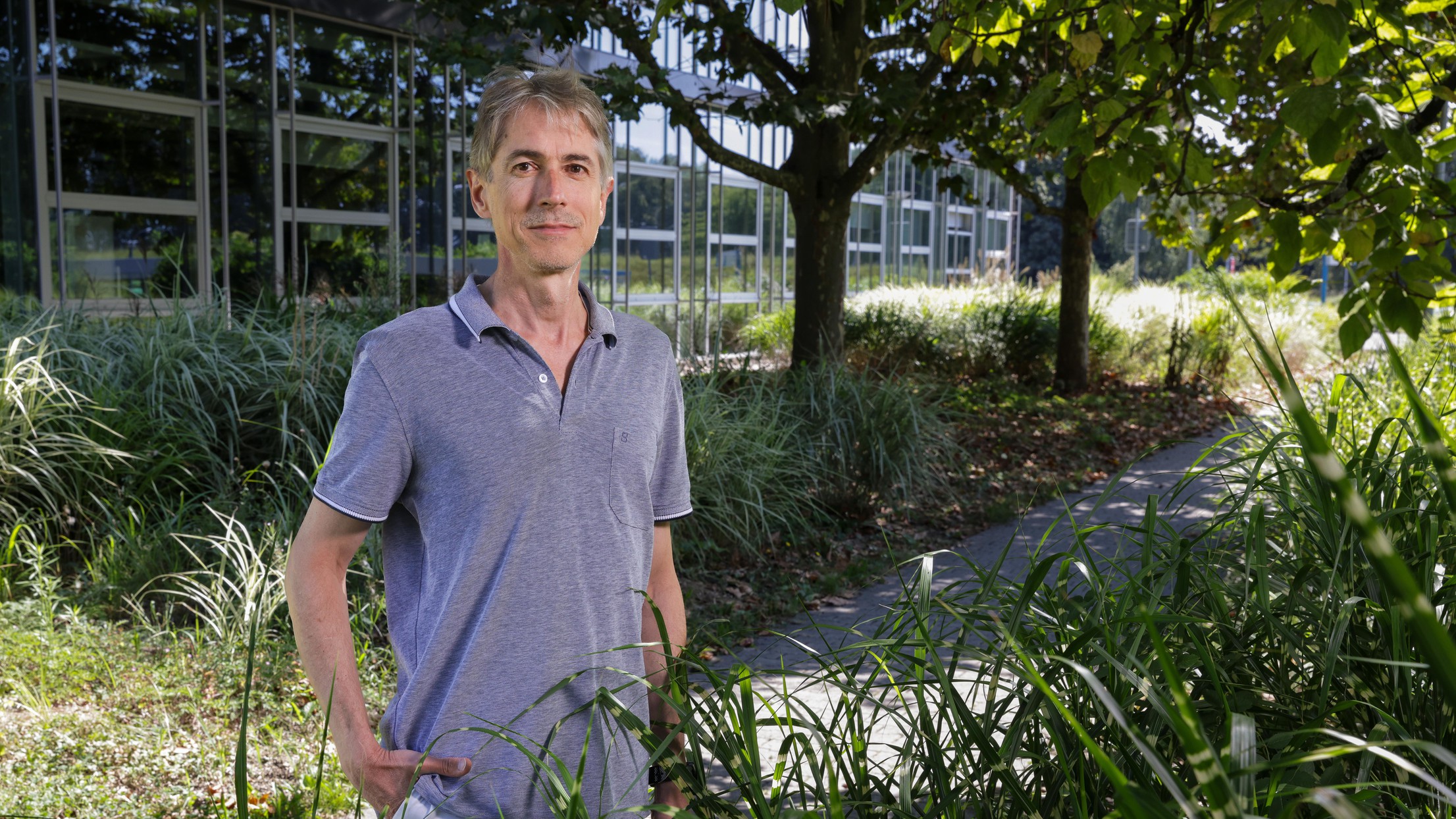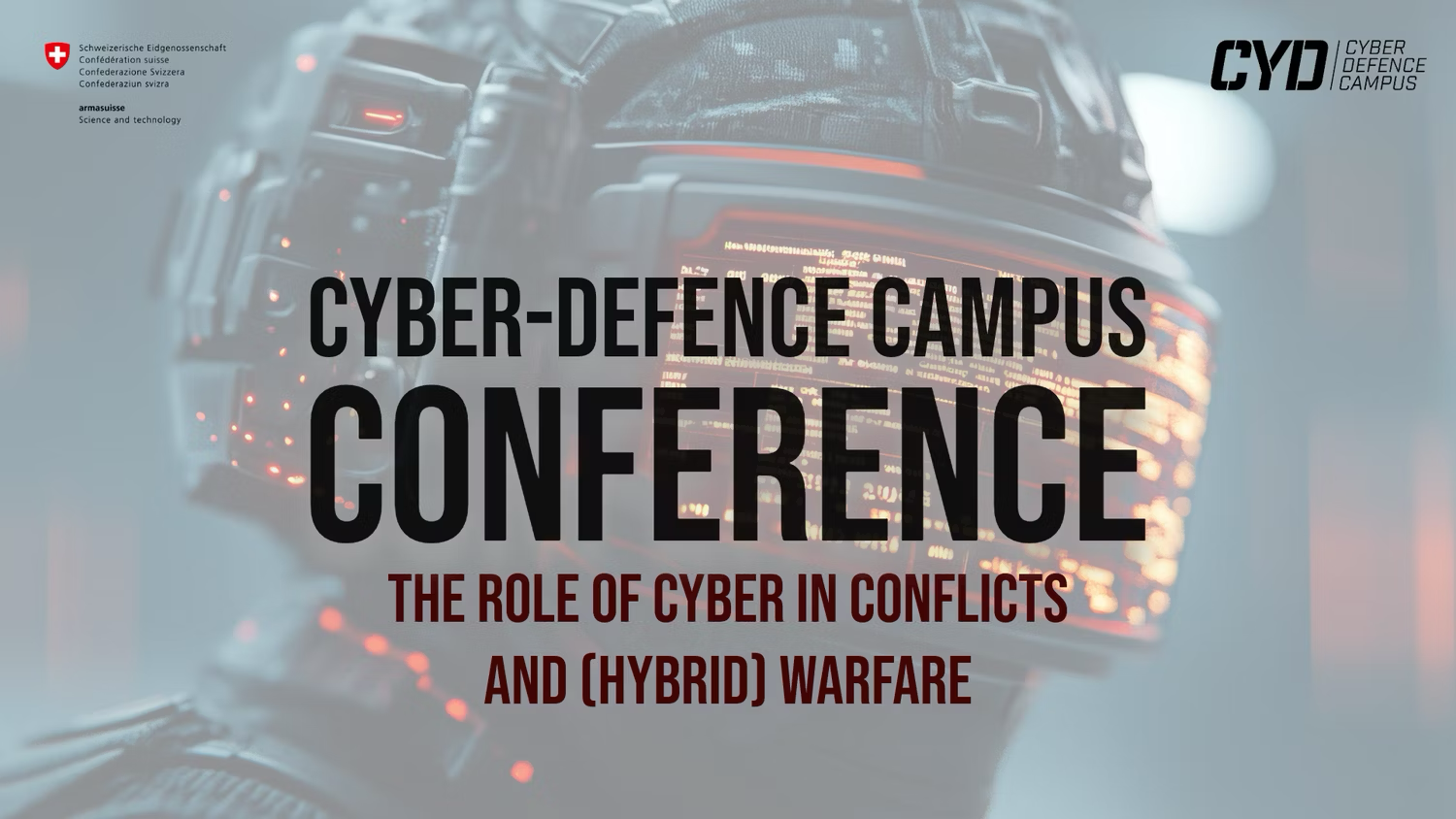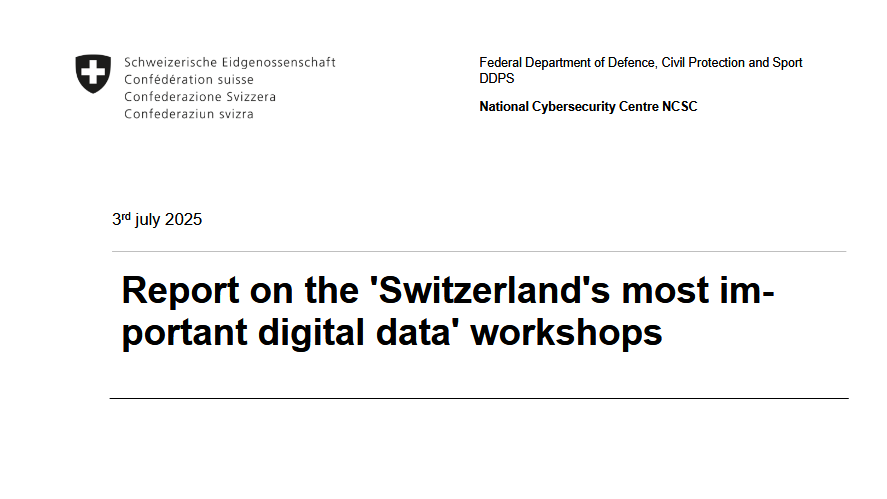The author highlights a crucial point that is often neglected by technology experts, entrepreneurs and government authorities alike: how the public understands and feels about this emerging technology. This article captures genuine opinions—optimism, anxiety, and confusion—from people outside the immediate quantum research community.
Traditional cybersecurity is by itself a nontrivial problem to address, and even big companies with dedicated budgets and teams are not immune to attacks. In an already precarious security landscape, adding AI to the mix has not only the potential to make a bad situation worse, but truly disastrous, as this excellent write-up of the (…)
Whether you’re for or against the proposed E-ID, a public discussion is the healthiest if it is founded on factually correct arguments. While this piece is clearly opinionated, it also tries to examine the main arguments from the opposition as neutrally as possible, and provides a good explanation and discussion for each of them, pointing (…)
The Israeli airstrike campaign against Iranian military and cyber infrastructure on 12 June had an ‘interesting’ side effect. Accounts that had previously been identified as allegedly being managed by the Iranian Revolutionary Guard Corps (IRGC) and that promoted Scottish independence fell silent following the strikes. This resulted in a 4% reduction in all discussion related (…)

The new method developed by EPFL researchers in collaboration with colleagues in Germany, is efficient, fast and inexpensive. This means that it could help moderators in the fight against disinformation on Telegram.

Damir Filipović, named best teacher in the financial engineering section for 2024, could very well have pursued a career in pure mathematics but instead chose the tumultuous field of quantitative finance.

A secure and reliable electronic identity (e-ID) is both a challenge and a crucial issue in today’s digital landscape. EPFL and SICPA are joining forces to design an innovative system of cryptographic algorithms.
I found this article interesting because, rather than perpetuating fear-driven narratives, it provides a thorough analysis backed by demographic realities in the Western world. Labour shortages, it suggests, make it unlikely that AI will ‘take all our jobs’. It emphasises how AI can increase access to specialist roles for a wider range of workers. The (…)
Like many legislative measures intended to protect users in the digital world, age-verification laws have noble aims. However, their practical implementation is messy. As is often the case, the solution not only likely involves privacy-preserving tech, but also requires compliance, enforcement, and government investment in educational initiatives to be effective.
Scandalous examples such as the fake video of Obama being arrested are a bleak reminder of not only what is possible today, but also that these technologies are becoming more and more commonplace in our daily lives. So what are the current state-of-the-art techniques for detecting deepfakes? On the occasion of this year’s DEFCON, this (…)
This article prompts reflection on what we mean by ‘trust’ when we talk about ‘trustworthy’ AI. There are many dimensions to trust, and the author helpfully breaks them down. In human-AI interactions, misalignments can occur when stakeholders interpret ‘trust’ differently. For example, companies might emphasize the epistemic aspect—reliance on knowledge and its acquisition—of trust, while (…)
It often appears as if disinformation was spread by a large number of social media users. However, research suggests that it is a comparatively small percentage of the users that is primarily responsible for creating and widely sharing divisive content, with these voices being amplified by the platforms’ algorithms. As bleak as this may be, (…)
With all the hype around agentic AI, the industry is rushing to embrace it. However, alarm bells have been sounded again and again concerning misaligned behaviour of LLMs and Large Reasoning Models (LRMs), ranging from ‘harmless’ misinformation to deliberately malicious actions. This raises serious questions whether the current technology is really mature enough to be (…)

This year’s Cyber-Defence Campus Conference will take place on Wednesday, 29 October 2025, at the Kursaal Bern. The main theme of the conference is ‘The Role of Cyber in Conflicts and (Hybrid) Warfare’. We look forward to welcoming experts and interested parties from government, industry and academia to this conference.

A must-attend event in Switzerland, the Black Alps conference is a hot spot for cybersecurity professionals and enthusiasts. The event allows you to discuss the latest threats, mitigations and advances in cybersecurity. The 2-day and 2-night program includes a variety of keynotes and technical talks, networking dinners and an ethical hacking contest (CTF). #BlackAlps25
Severe floods in Texas sparked a wave of conspiracy theories, with claims circulating online that the disaster was caused by geoengineering or weather weapons. This highlights a growing tension between the speed at which formal institutions can communicate accurate information and the rapid spread of AI-fueled disinformation. The resulting vandalism of radar infrastructure and threats (…)
A lot of cryptographic proofs rely on something called the ‘random oracle model’ and the ‘Fiat-Shamir transformation’. Together, they can create a mathematical proof of the security of a specific zero knowledge protocol. However, the random oracle model is never used – in real algorithms, it is replaced by a hash function. What can go (…)
As a software engineer, I’m looking at LLMs both as a tool for, but potentially also a danger to, my job: will it replace me one day? In this study, they measured the time that seasoned software needed to fix a bug, both with and without the aid of LLMs. The outcome in this specific (…)

C4DT collaborated with NCSC on implementation of Motion 23.3002. It organized the first of a series of three workshops, actively participated in two additional workshops, and delivered a summary of the workshop results from C4DT’s perspective for the final report.”
Am Beispiel deutscher Medien wird die Entwicklung des Online-Journalismus seit den 90ern bis heute nachvollzogen. Besonders interessant finde ich die Diskussion der jeweiligen Problematiken denen die Verlage im Web 1.0, in den sozialen Medien und heute mit generativer AI konfrontiert sind/waren.
Dieser Beitrag erläutert anschaulich am Beispiel des jüngsten Datenleaks der Schweizer Bundespolitiker:innen warum wir als Gesellschaft solche Leaks nicht bagatellisieren sollten.
There has been a lot of discussion about the high cost of cyber-attacks, and the recent announcement that the credentials of Swiss parliamentarians are circulating on the Darknet serves as a reminder of this. Interestingly, stolen access credential is the main intrusion vector (16%) in companies and remains undetected for the longest time (an average (…)
The Center for Digital Trust hosted a successful workshop on Privacy-Preserving eID last week. We welcomed 14 participants from seven partner organizations including Be-Ys, ELCA, FOITT, Kudelski, SICPA, Swiss Post/SwissSign, and Swisscom. The day-long event combined theoretical foundations with hands-on technical demonstrations. Our focus centered on swiyu, Switzerland’s proposed eID project developed by FOITT, and (…)
This report reveals new vulnerabilities in the equipment used in solar power grids and smart homes. It shows that attackers can exploit flaws in the supply chain and insecure protocols to disrupt power generation or grid stability. Clear infographics illustrate the network structure, risks and the worldwide share of solar use. As solar energy continues (…)





